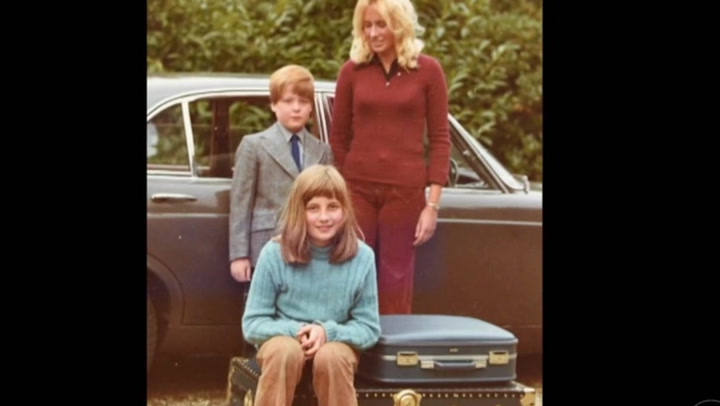Sitting on a video link from the Welsh prison where he had spent most of his adult life, Leighton Williams said what he witnessed in a courtroom 274km (170 miles) away “didn’t seem real”.
He was being freed, a judge in London told him, after ruling that the controversial indeterminate sentence he was handed for a drunken fight aged 19 was a mistake.
He should have been given a five-year determinate sentence and would probably have been freed after serving half that time. He would have been out by the time he was 22.
But now aged 36 and having served more than 16 years – mostly in custody – he knows the imprisonment for public protection (IPP) he was wrongly handed has robbed him of some of the best years of his life.
“I have missed out on growing up with my friends,” he told The Independent. “Going out. Getting a trade, being able to work. Just living a normal life.
“I deserved to go to jail – I understand that. There is no doubt about that. But for the length of time – I don’t think you can justify that.”
In his first interview since he was finally freed in May, Mr Williams railed against the injustice of the IPP sentence, which he described as “mental torture”.
He revealed his anger at learning of the government’s early release scheme which will see prisoners freed after serving just 40 per cent of their fixed term sentence to ease overcrowding, while almost 3,000 IPP prisoners still languish inside with no release date.
The IPP jail terms – under which offenders were given a minimum tariff but no maximum – were scrapped in 2012 amid human rights concerns. But the abolition of the policy did not affect those already sentenced, leaving thousands trapped in jail for years beyond their original prison terms.
Of 2,796 IPP prisoners currently incarcerated, 708 have served at least 10 years longer than their minimum tariff.
The Independent is campaigning for all IPP prisoners to have their sentences reviewed.
Mr Williams is the first to admit he deserved to go to prison after he and some friends had got into a fight in a park after a day of drinking in his hometown of Caerphilly, Wales, in August 2007. His victim suffered a fractured jaw and cheekbone in the assault.
So when he was handed an IPP sentence with a minimum tariff of 30 months at Cardiff Crown Court the following year, he did not press for an appeal.
“When I went in, I didn’t know what IPP was,” he said. “I didn’t have a clue what it was until like four or five years went past – the realisation kicked in then.”
He eventually learned he was to be kept in prison indefinitely until he could convince a parole board that he did not pose a risk to the wider public.
He described living under sentence as “helpless, hopeless” and “empty” as he was repeatedly knocked back at bi-annual parole board hearings, adding: “It just doesn’t feel like there is a way out.”
He was incarcerated for almost nine years before finally being let out under strict licence conditions.
During four treasured years of freedom, he started a family and his first two children were born. But he was hauled back to prison on recall after his neighbours called the police after overhearing a row in his back garden.
Mr Williams was arrested, but not charged with any crime. Nevertheless, due to the licence conditions he was returned to prison under the same IPP sentence and found himself back at square one – waiting for the parole board to decide to let him go.
He served another two years, throughout the Covid-19 pandemic, before he was released again, only to be recalled for a second time in 2023 for pushing someone outside a pub.
Back inside and in his sixteenth year serving his IPP sentence, losing hope he would ever escape the never-ending jail term, he decided to write to the Court of Appeal “out of the blue” in 2023.
He served a further 13 months in HMP Parc – a scandal-hit medium security men’s prison in Bridgend, where 10 inmates have died in three months – before three appeal judges set him free on 9 May after finding the original sentencing judge had wrongly counted a previous offence, committed when he was 17, against him.
They ruled: “The indeterminate sentence for public protection will be quashed. We will substitute a determinate sentence of five years’ detention in a young offender institution which will result in immediate release.”
Three weeks earlier his parole hearing had been deferred with a stand-in probation officer, who had never met Mr Williams, informing him they would not be recommending his release after reading his file the night before.
“It’s just mad – one day I am having my parole knocked back and three weeks later I am just let out,” he said.
He added: “It just doesn’t seem real. If I can appeal 16 years later and they can change my sentence, quash my sentence, and give me five years so my sentence finished in 2009 – so all those years after then are just lost years.”
Now a father of three, with a son and two daughters aged five, seven and 11 months, he is living back living with his mother in Caerphilly until he can find a flat with his partner.
His focus is now on making up lost time with his family as he tries to rebuild his life, but he fears the scars from the sentence will take time to heal.
He said: “I was just mentally tortured. Just scarred.
“I don’t even like going places. I am trying to spend as much time as I can with my children. It’s hard for them too because every time I leave the door they say ‘where are you going?’ They think I’m not coming back.”
While he has thought about seeking compensation, he said he doesn’t know where to start.
In the meantime, he is calling for the new government to act fast to help others languishing under the abolished sentence, which has been described as “torture” and “arbitrary detention” by a UN expert.
The cross-party justice committee urged the previous Tory government to carry out a resentencing exercise for all remaining IPP prisoners, but it refused.
He urged elected Sir Keir Starmer to have the courage to “do the right thing”.
“So many IPPs have never been home. It just makes it 100 times worse and there is no one there for them,” he said.
“I think they have forgotten them and there is very little care as well. They are just suffering and suffering, that’s how it feels, like there is no way out.”
Figures released this month show 2,734 people remain in prison on IPP sentences.
Some 121 people have taken their own lives as they lose hope under the sentence – including 90 in prison and 31 in the community.
Other tragic cases highlighted by The Independent include Yusuf Ali, who did not eat for 61 days as he lost hope of ever being freed; Wayne Williams, who has spent 18 years in prison on a 23-month tariff for attempting to injure a police officer in a fight; and Thomas White, who has been diagnosed with paranoid schizophrenia in prison after serving more than 12 years for stealing a phone.
Emergency measures announced this month to release other prisoners early to ease overcrowding will do nothing to help those serving the indeterminate sentence.
Responding to the news, he continued: “I just feel angry. These boys they should be a priority but they are just forgotten about. It doesn’t feel like anything is going to happen or change.”
He urged all IPP prisoners who have not exhausted the appeals process to follow his lead and write to the Court of Appeal.
Campaigner Shirley de Bono, of IPP Committee in Action, is supporting Mr Williams as he tries to adjust to live on the outside.
She said: “Although he’s no longer in prison it ruined his life. It took his youth away from him. He’s never going to get all those years back again and there is no help or support out there for him.
“What I would like to do is urge all IPP prisoners to appeal their sentence. For 16 years he thought it wasn’t worth appealing until one day he decided to take a chance.”
A Ministry of Justice spokesperson said: “The prison system is in crisis and we recognise the significant impact this is having on our whole justice system.
“It is right that IPP sentences were abolished. The Lord Chancellor is committed to working with organisations and campaign groups to ensure the appropriate course of action is taken to support those still serving IPP sentences.”
Source: independent.co.uk



